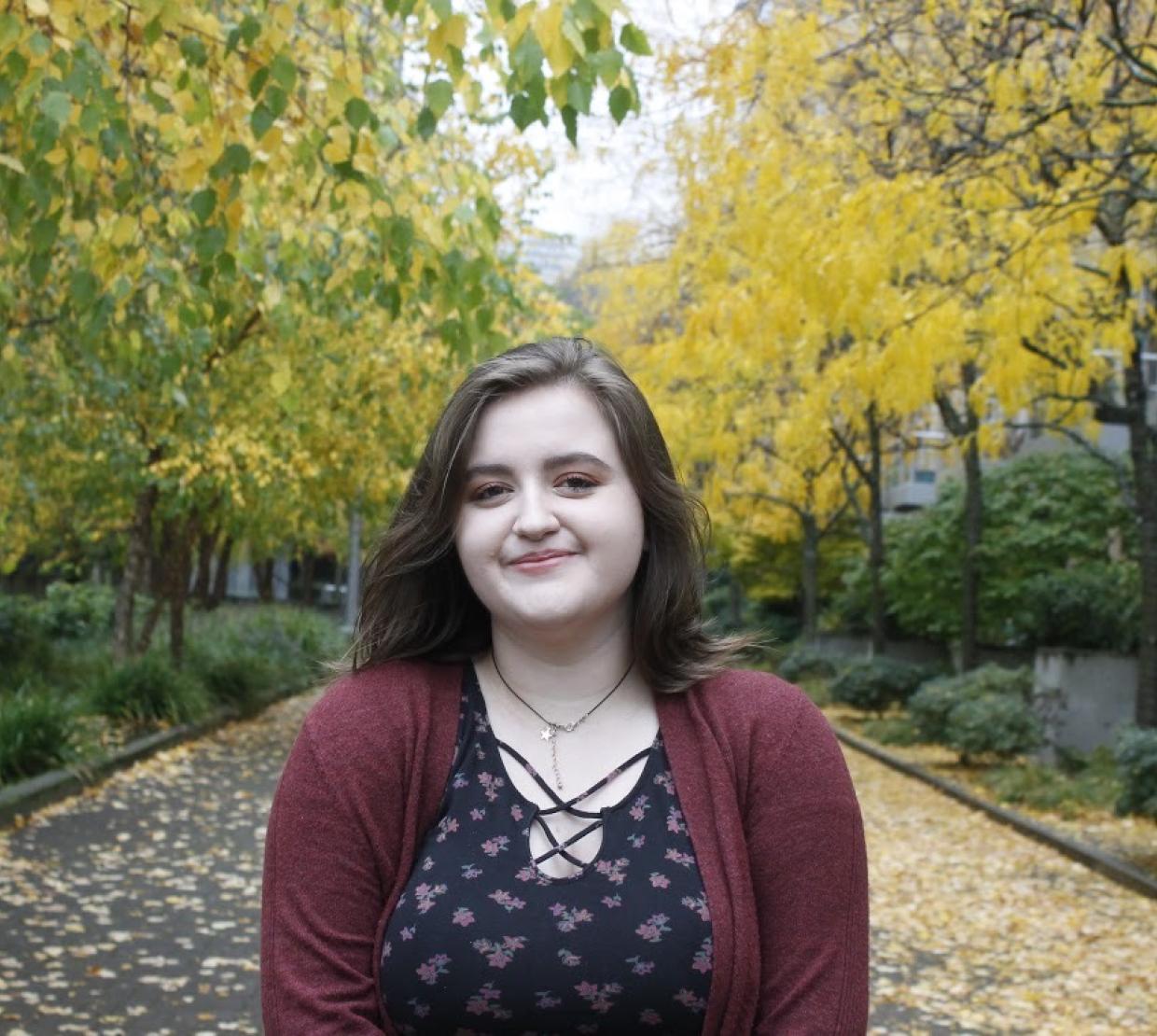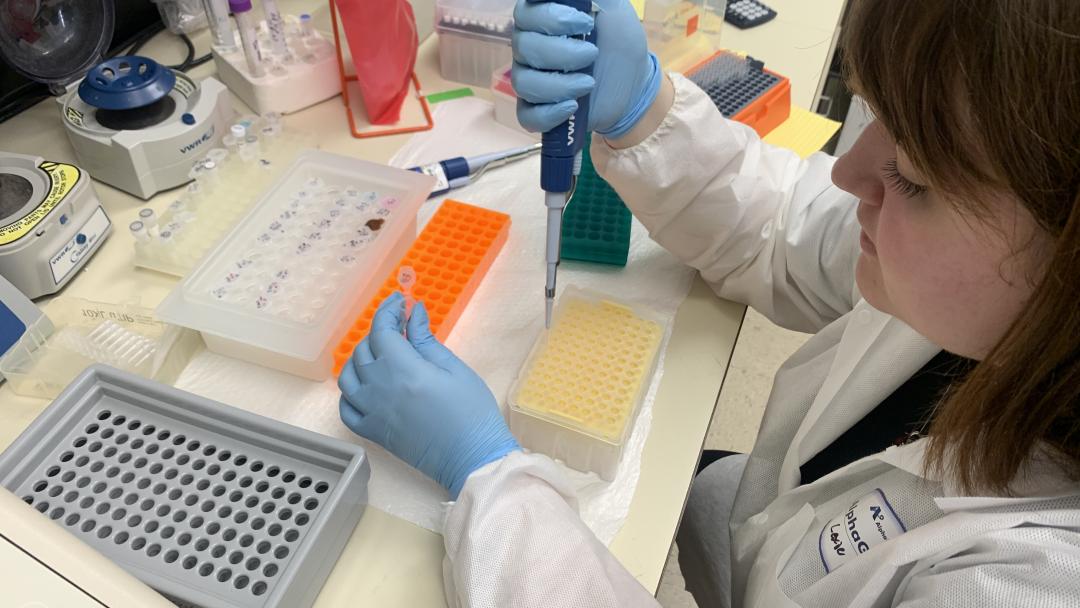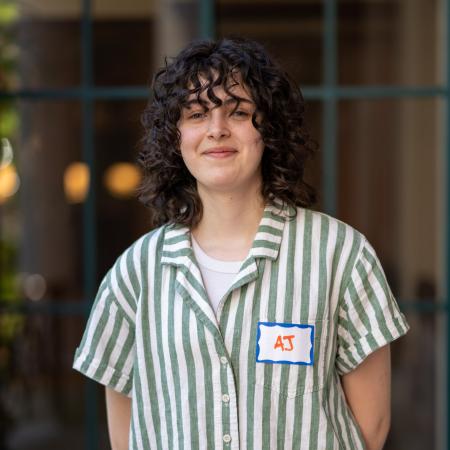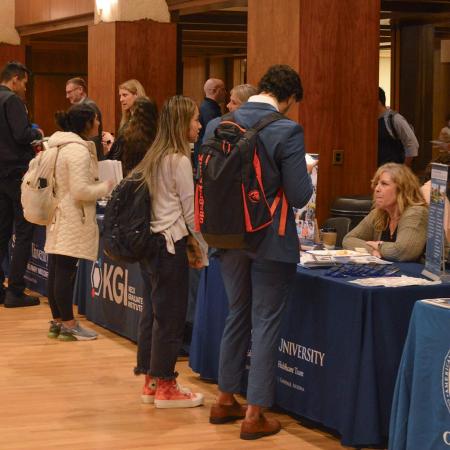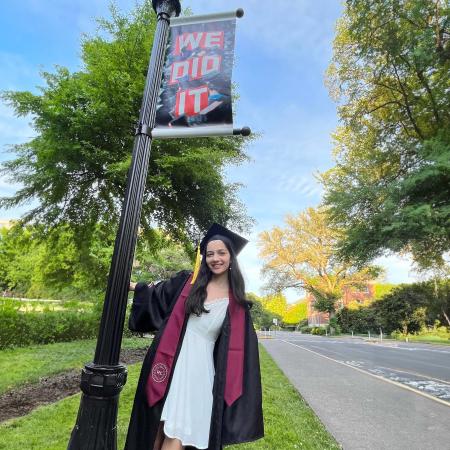Following her passions
Lexie Swisher’s parents knew she would grow up to be a scientist.
“My mom always harkens back to me wanting to take apart my calculators because I liked the pad that was on them. I would always take them apart and put them back together,” Swisher reminisced. “I remember not being able to put back together my favorite calculator, and that made me really sad.”
Bill Nye the Science Guy, How It’s Made and The Science Channel were her favorite sources of TV entertainment.
Swisher had a very lofty goal for her future: cure cancer. She watched multiple family members suffer from the devastating illness and wanted to help.
As an adult, she acknowledges that her goal was incredibly ambitious, but she remains determined to make her mark in science, especially in the field of genetics.
To achieve her dream of completing post-baccalaureate research in the health sciences, she knew finding a lab opportunity at Oregon State was crucial. Through word-of-mouth, she found her way to Professor Ling Jin in the Carlson College of Veterinary Medicine Biomedical Sciences department.
"Being in a lab meant I could engage in the stuff I am genuinely interested in throughout the school year."
Although Jin typically accepts freshman and sophomore students into her lab, she made an exception for third-year students struggling due to the challenges of the COVID-19 pandemic.
“I was originally going to do something related to koi herpes virus, but she ended up changing my research focus to oysters because we needed to do more research in that field. She assigned it to me, and I was really happy to do it. I thought the oysters were super interesting, and it was a bigger project than I was expecting to get from her, but I was honored to have it,” Swisher said.
Despite receiving a summer grant from the Carlson College of Veterinary Medicine, she faced financial barriers when much of her data needed to be reprocessed during the academic year due to a machine malfunction.
Thanks to LURE, she was able to devote more of her time to reprocessing hundreds of samples, which were crucial for her research and her Honors thesis. Because she didn’t have a vehicle, she was limited to on-campus opportunities.
“I don’t think I could have gone through fall term without LURE. Having to work and do lab would have been insane for me. I was taking immunology and cell biophysics and other really hard classes that took a lot of my time,” she said.
Swisher has experience working at The DAM and Bites, two food restaurants on campus, taking the 7 a.m. shift because no one else was able to.
Undergraduate research differs from participating in research as part of a class. Without the pressure of focusing on a grade, Swisher found it more enjoyable and a positive experience overall.
“I find immunology and virology super interesting, and there are not a ton of classes at Oregon State that I could take for that. Being in a lab meant I could engage in the topics I am genuinely interested in throughout the school year,” she said.
Another benefit was building community. “I like the comradery of being in a lab. I have a good relationship with my lab Principal Investigator and everyone else in the lab, so it’s nice to be a part of that. Plus, my lab PI is super great about helping me with my thesis; she has helped a lot of other Honors students before, so she is a pro in the field,” she said.
Swisher has grown tremendously as a scientist and a communicator since she entered Oregon State. Sharing science with the general public is another passion. Unnecessary, complicated jargon hinders science understanding for many individuals.
She is passionate about making science accessible and meaningful to anyone, including her grandparents who lacked a formal education. "When they have questions, I’m the in-between person trying to explain it in a way that they understand.”
Swisher has many passions in life: genetics, teaching, science communication, accessible research and more. Unfortunately, the astronomical costs of living create impossible decisions. Because of LURE, she didn’t have to sacrifice any of her passions.
